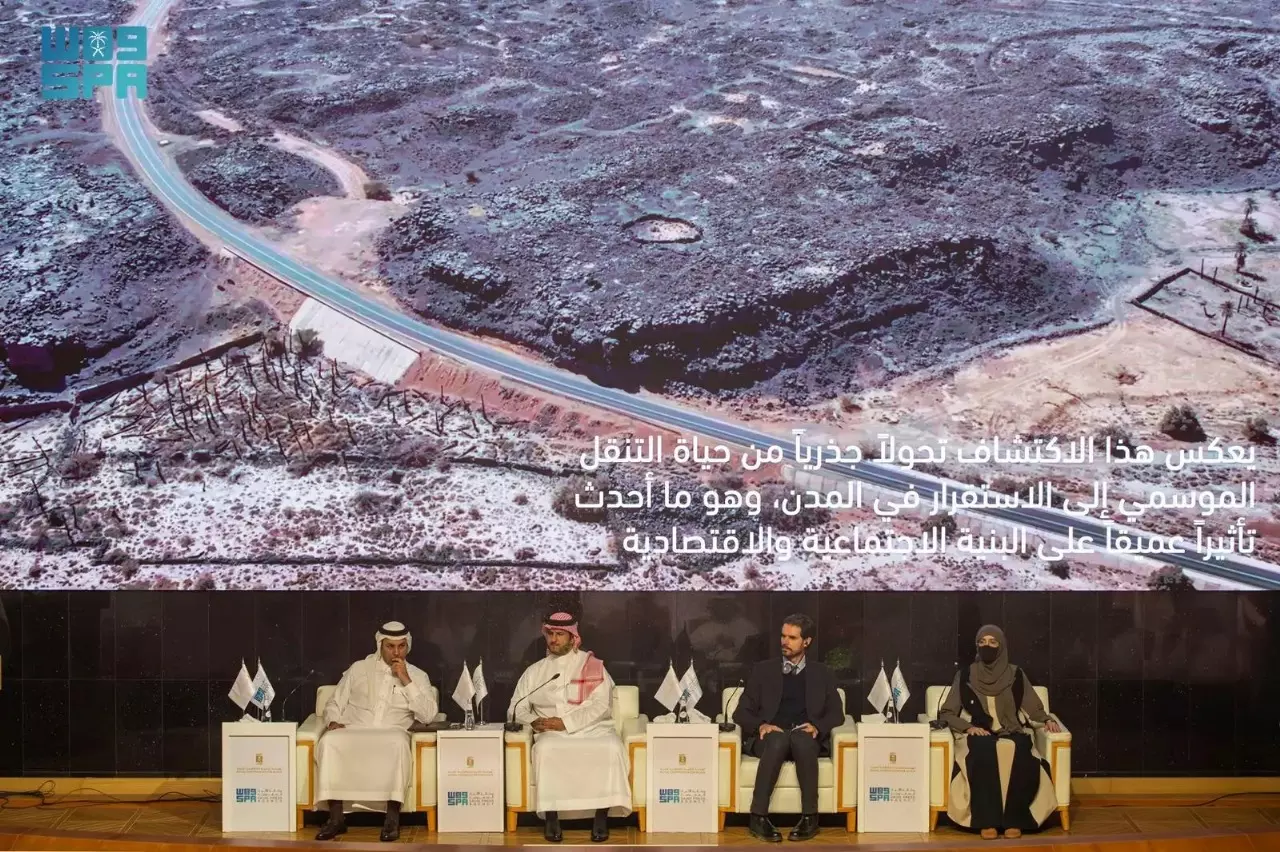
Bronze age archaeological town discovered at Khaybar Oasis, Saudi Arabia
text_fieldsRiyadh: The Royal Commission for AlUla (RCU) has announced the discovery of a Bronze Age town in the Khaybar Oasis, northwest of the Kingdom. The discovery, recently published in the scientific journal PLOS ONE, was revealed during a press conference at Riyadh's Saudi Press Agency conference centre. Archaeologists emphasize that the discovery significantly contributes to Saudi Arabia’s reputation in antiquities, showcasing the region's extensive cultural heritage.
The discovery of the ancient town Al-Natah provides critical insights into the transition from nomadic pastoralism to urban settlement in northwestern Arabia during the Bronze Age. This shift, dating back to between 2400 and 1500 BC, challenges previously held assumptions about the area, illustrating a complex, stable society supported by agriculture and trade. This project forms part of the ongoing Khaybar Longue Durée Archaeological Project led by Dr. Guillaume Charloux of the French National Centre for Scientific Research (CNRS) and Dr. Munirah AlMushawh, Archaeological Survey Manager at RCU.
Al-Natah, spanning 2.6 hectares, was home to approximately 500 residents. Archaeologists found that the town’s design included fortified walls and a clear division between residential and funerary areas. This layout, enhanced by a 15-km-long stone wall encircling the Khaybar Oasis, indicates a high level of organization, with Al-Natah functioning as a stable urban centre. The study shows that Al-Natah’s inhabitants practised skilled craftsmanship, creating pottery, working with metal and adorning clothing with beads. Their diet was largely based on mutton, lamb, and grains, with narrow pathways leading to a town centre where the community gathered.
The town’s residents buried their dead in graves and tiered towers, signifying social status through items like pottery and metal tools, including axes and daggers. The find shows the socio-economic complexity of the region, with Khaybar emerging as a centre for trade, attracting both local and nomadic communities.
The research, a joint effort by RCU, the French Agency for the Development of AlUla (AFALULA) and CNRS adds to a series of studies that have redefined the region’s ancient history. Since 2018, investigations into AlUla and Khaybar have uncovered mustatils - massive stone structures, funerary roads and stone circles used as dwellings. The current findings reinforce that Bronze Age societies in northwestern Arabia were more sophisticated and regionally connected than previously understood.
Excavations began in October 2020, with high-resolution imaging and detailed field surveys in early 2024 helping to unveil the ancient town’s layout. Future work promises a deeper understanding of life in Al-Natah, which stood on the northern edge of the oasis, partially buried under basalt rock for millennia. As excavation progresses, archaeologists aim to learn more about the architecture and daily life of this ancient community.
Historian Saifi Alshilali, a Khaybar native, contributed to the discovery, highlighting Saudi Arabia’s commitment to preserving its historical legacy. This goal aligns with the Kingdom’s Vision 2030, which seeks to strengthen global cultural partnerships and raise awareness of shared heritage. RCU’s Department of Archaeology, Collections and Conservation manages one of the world’s largest archaeological programs, elevating AlUla as a premier cultural heritage site.
The discovery of Al-Natah follows the recent AlUla World Archaeology Symposium 2024, where experts gathered to discuss the region’s past and future role in the archaeology of mobile communities. Themed “Moving Forward: Past, Present and Future in the Archaeology and Heritage of Mobile Communities,” the symposium marked AlUla’s expanding influence in the global archaeological field.
With 10 ongoing projects and a team of 100 specialists, RCU’s archaeological initiatives continue to bring Saudi Arabia’s rich past to light. This latest discovery reinforces the Kingdom’s role as a significant centre for archaeological research and cultural exchange, drawing global attention to the ancient heritage of AlUla and Khaybar.






















